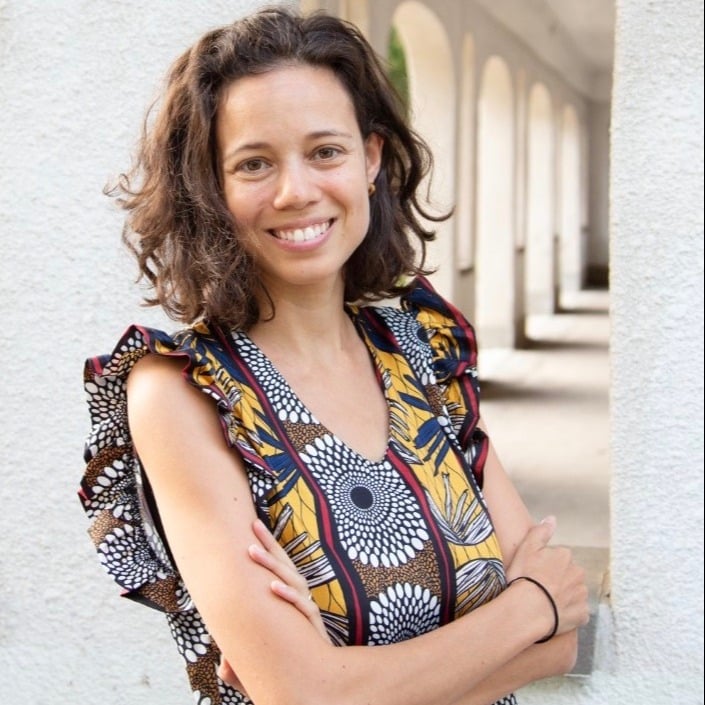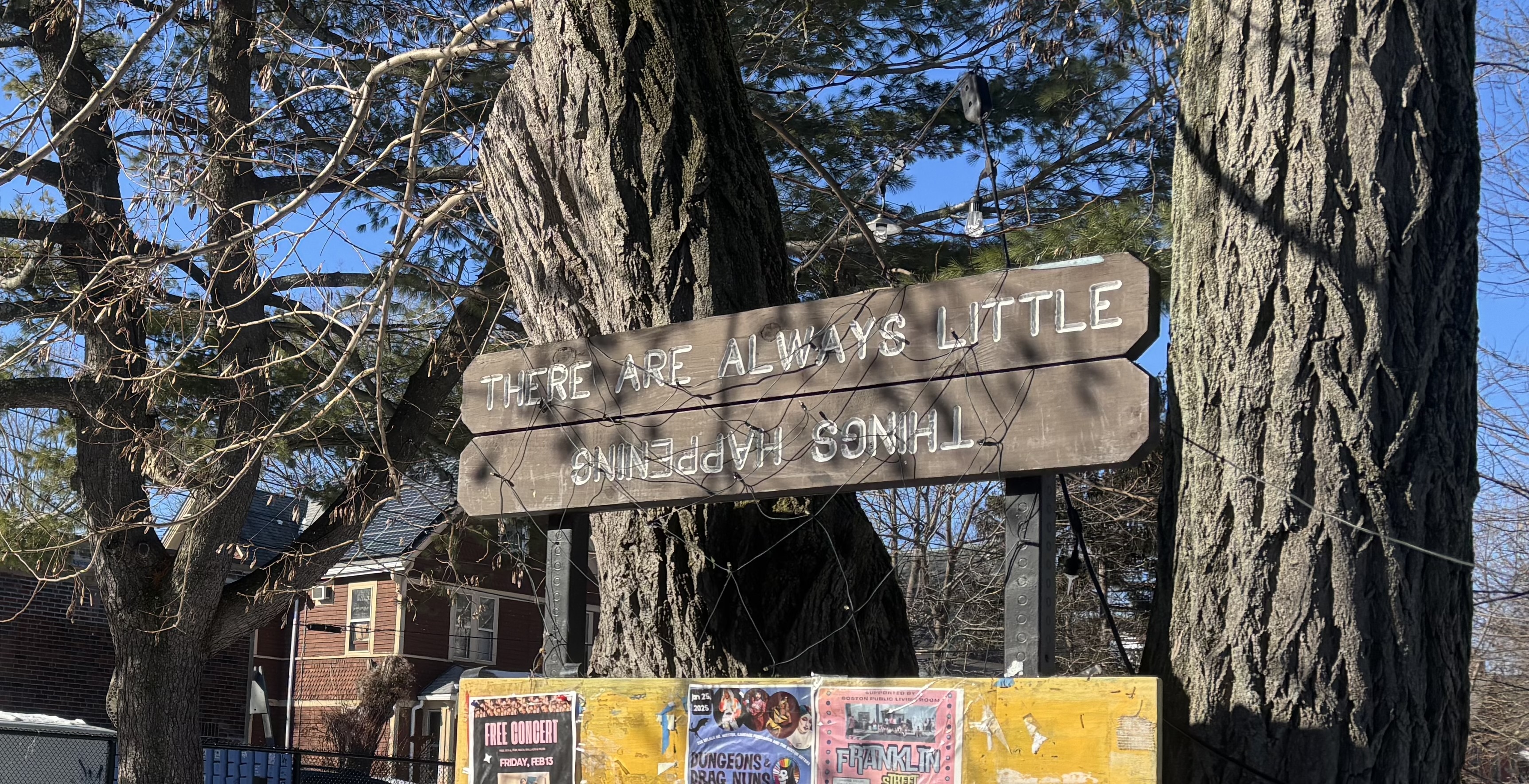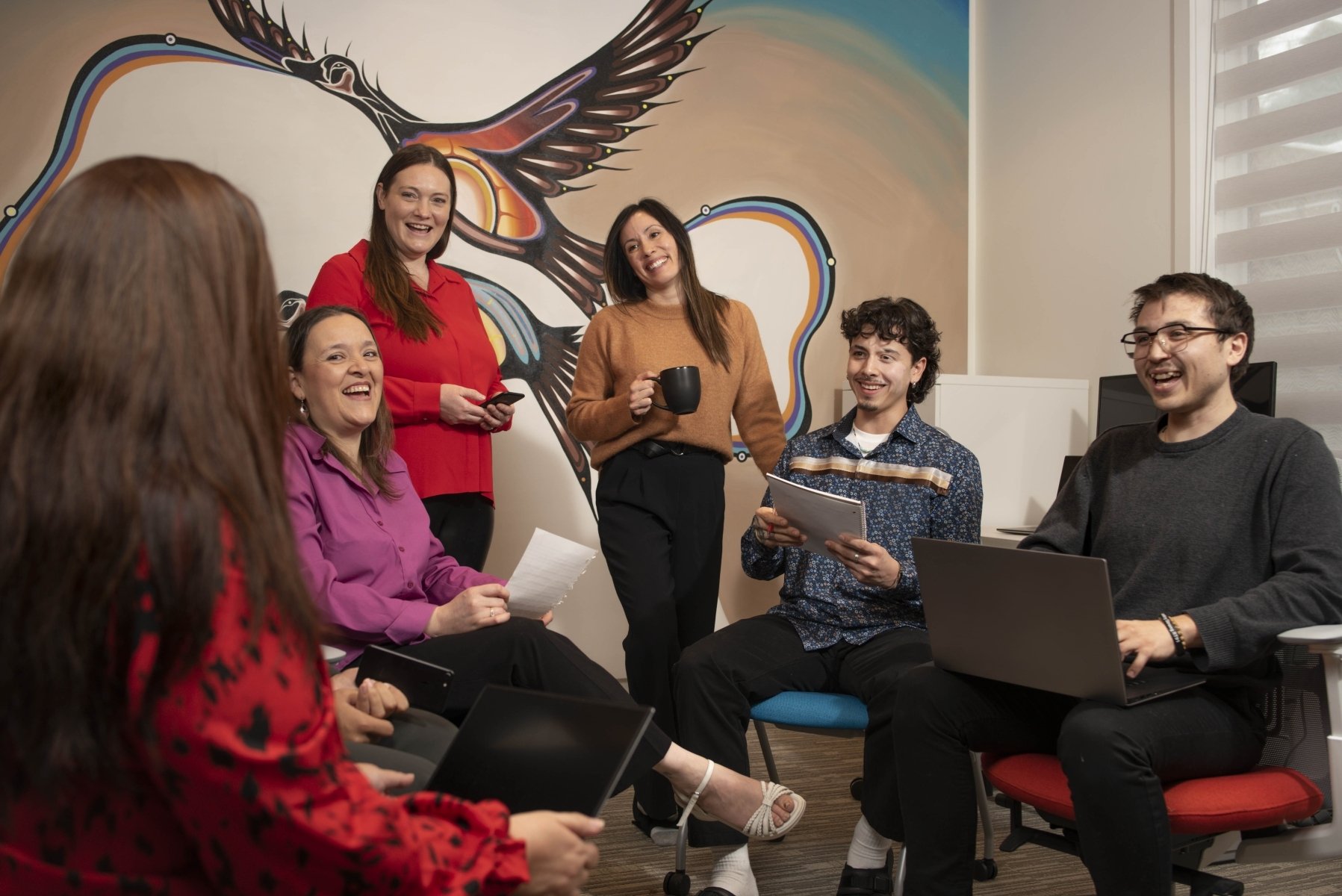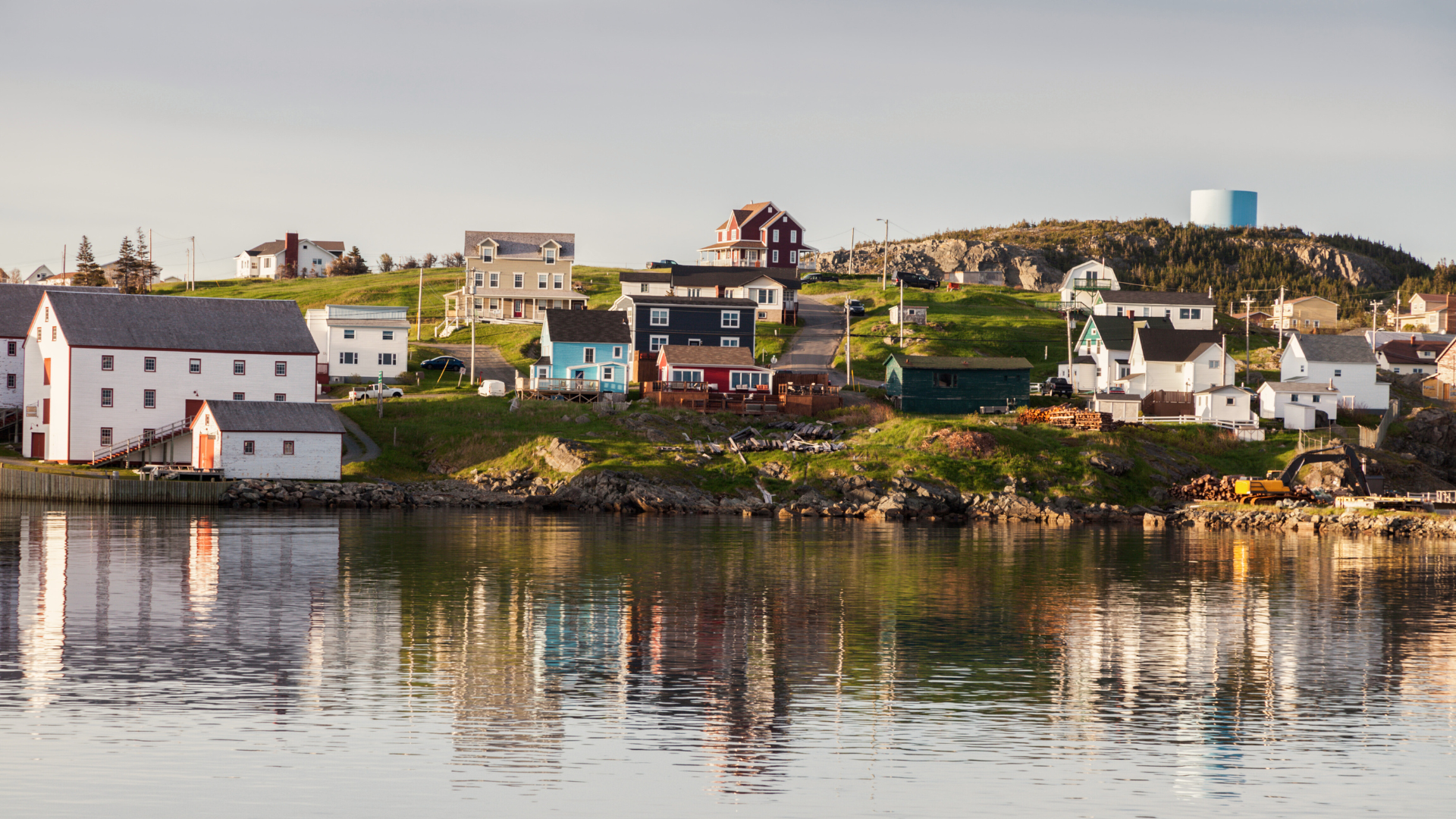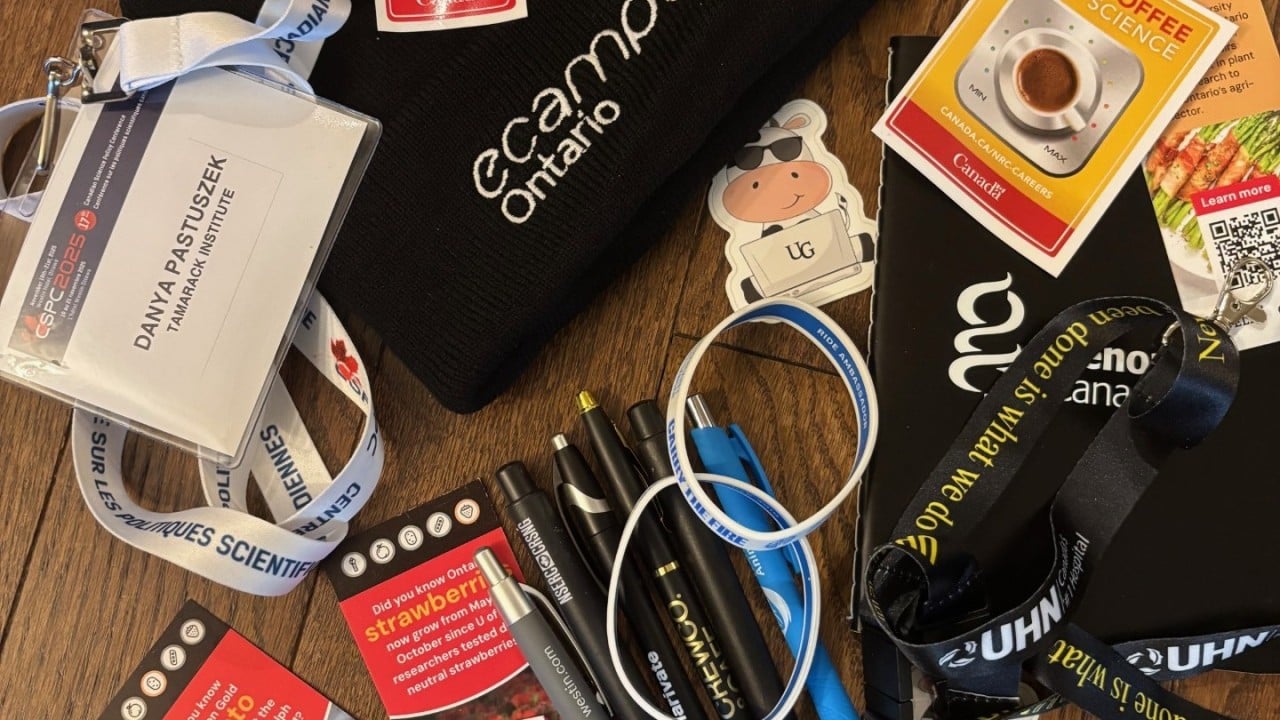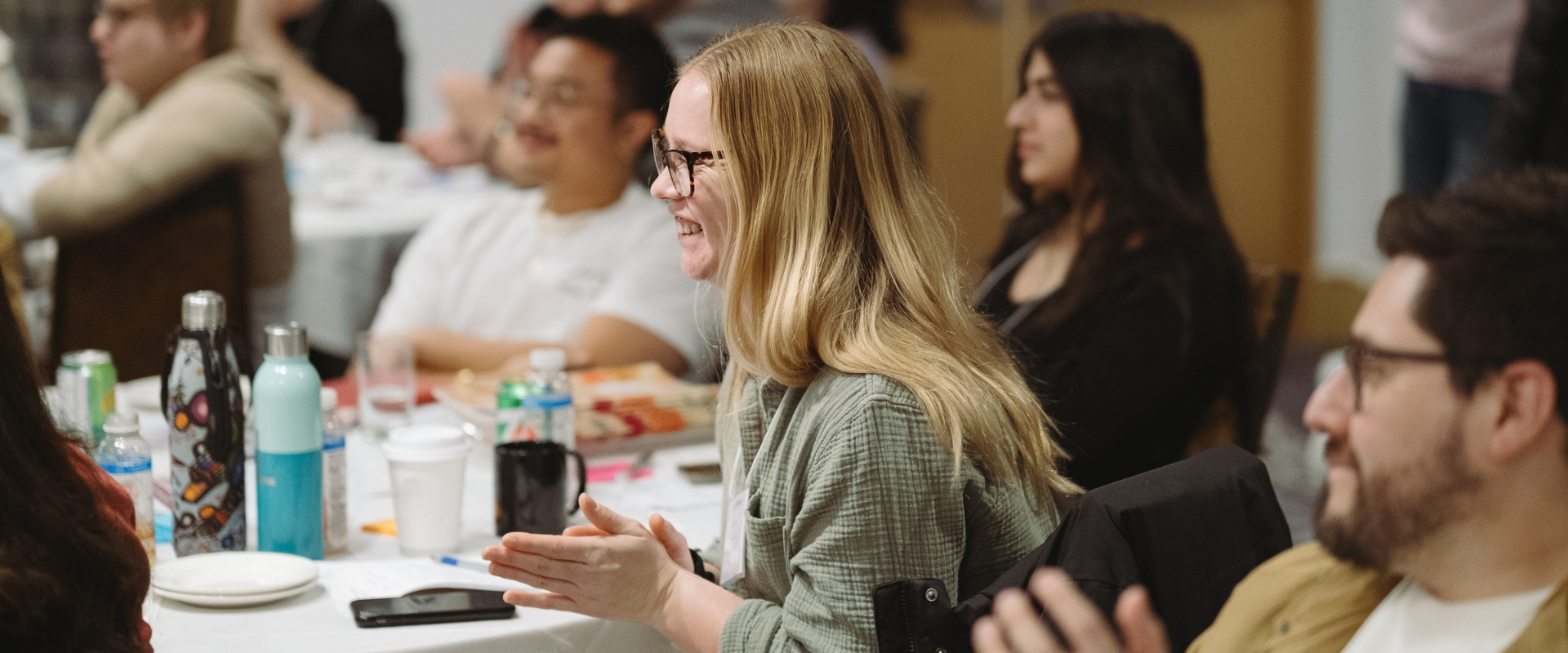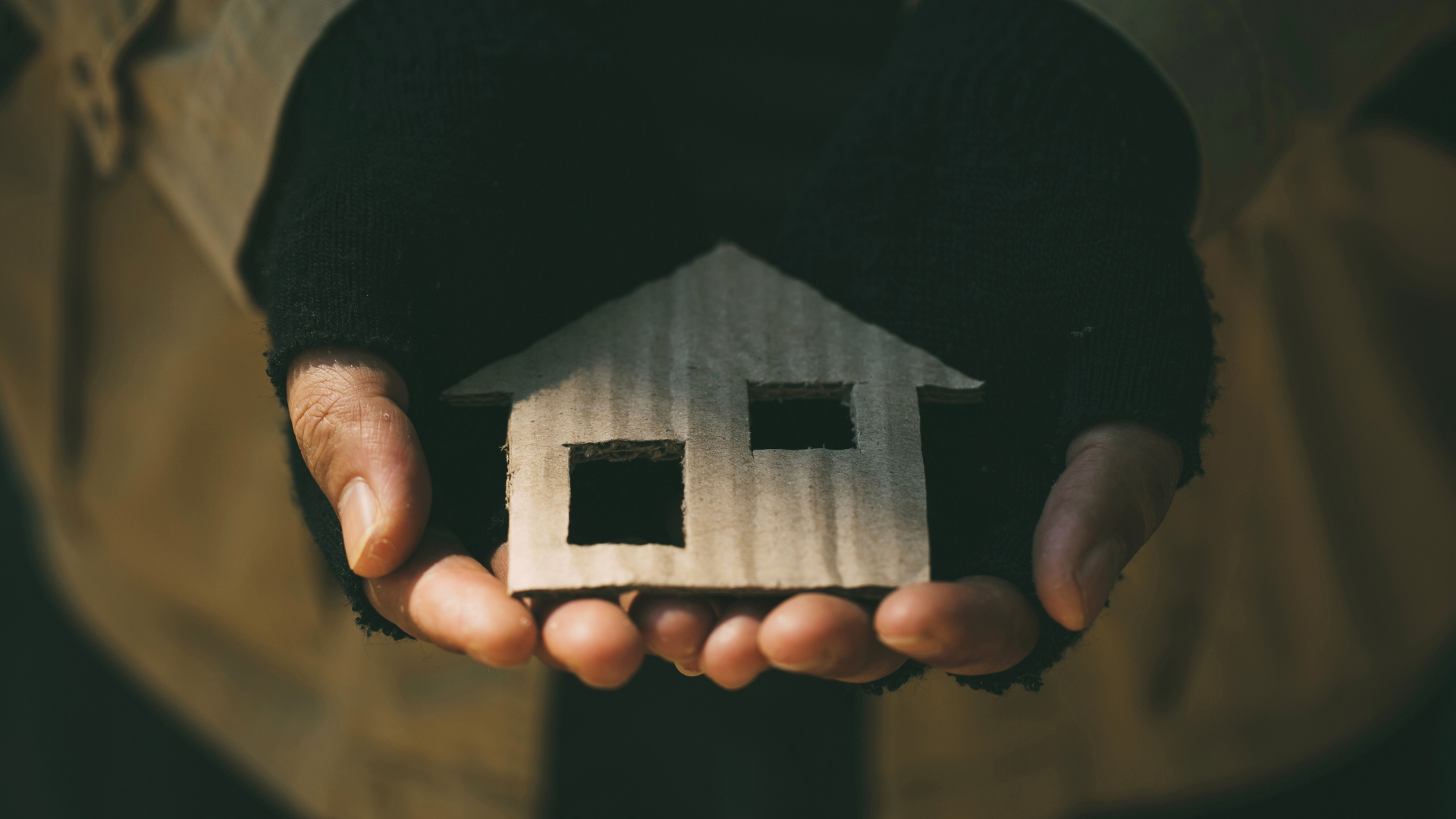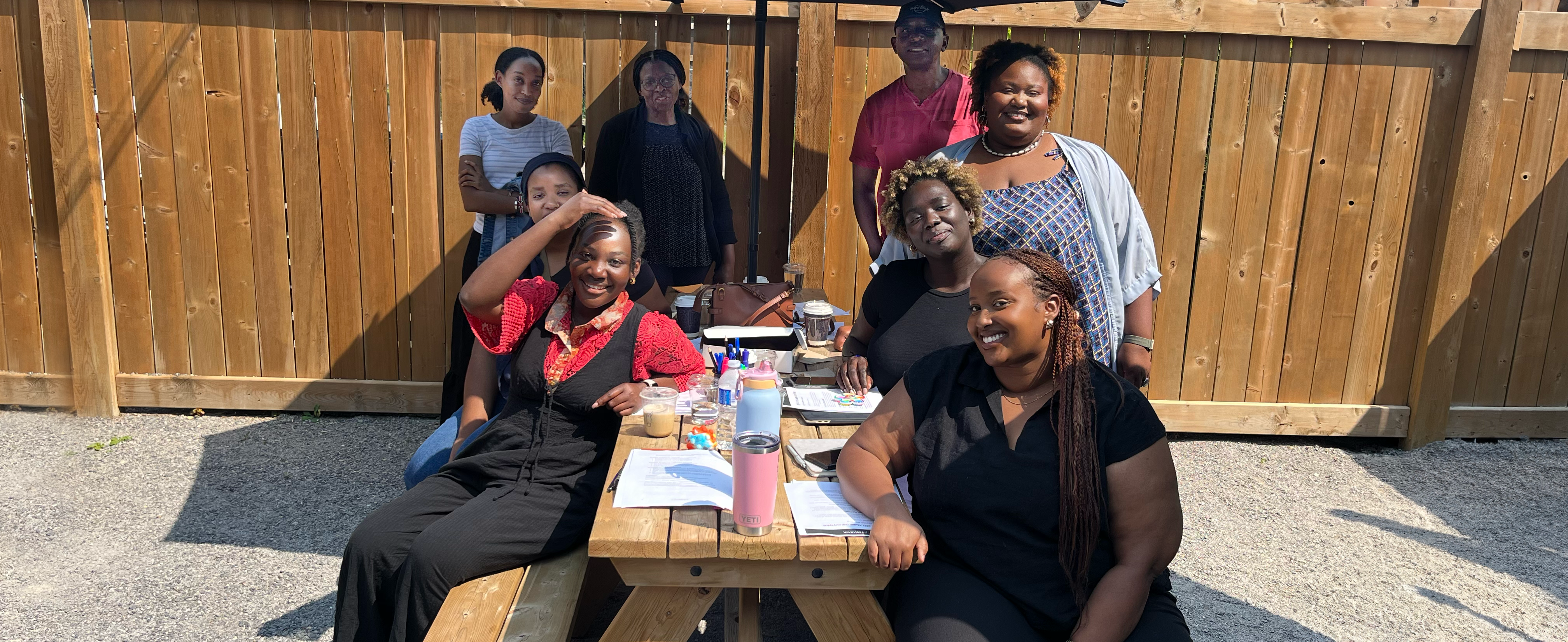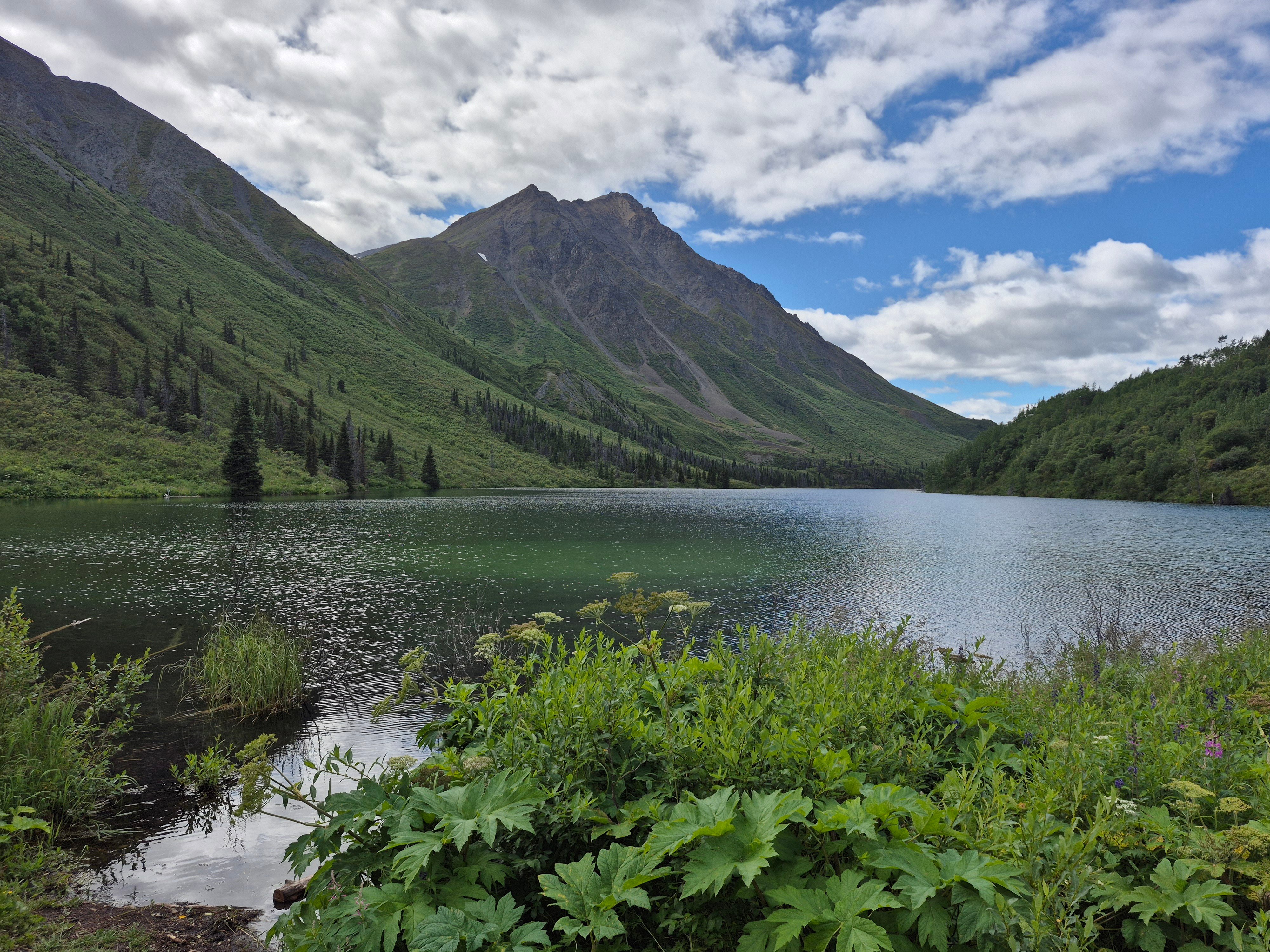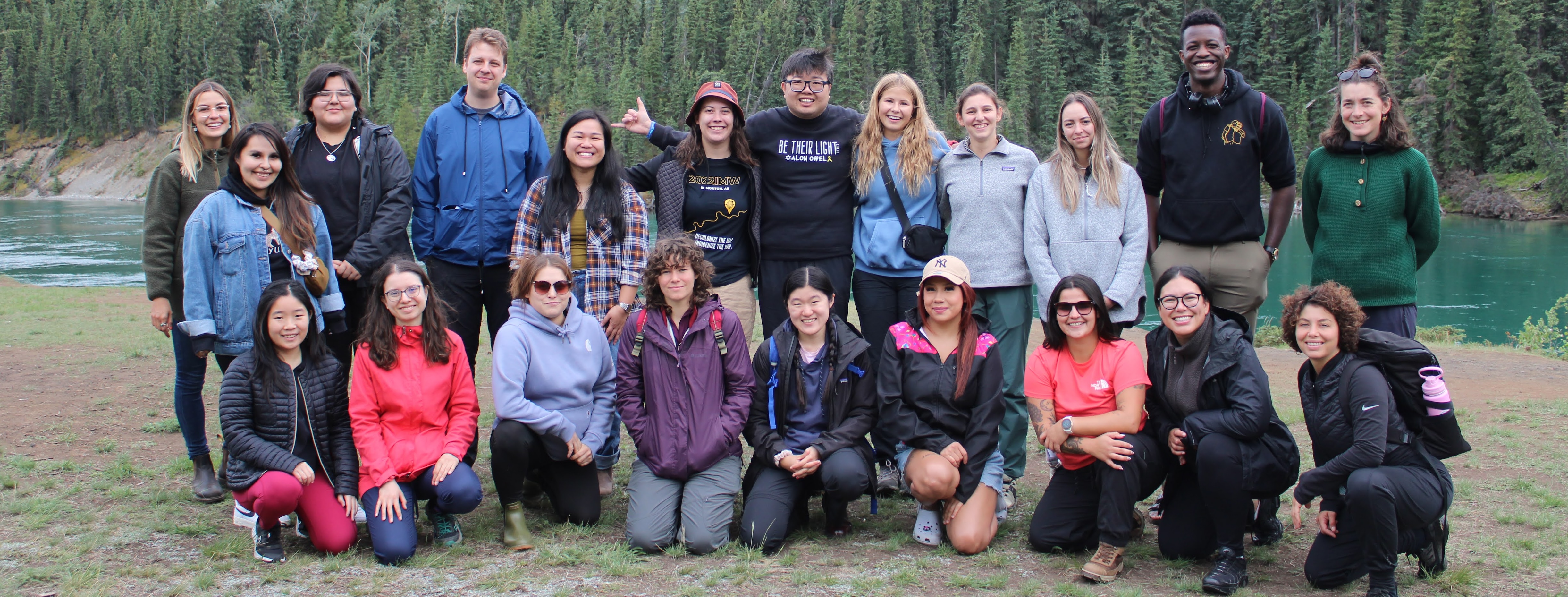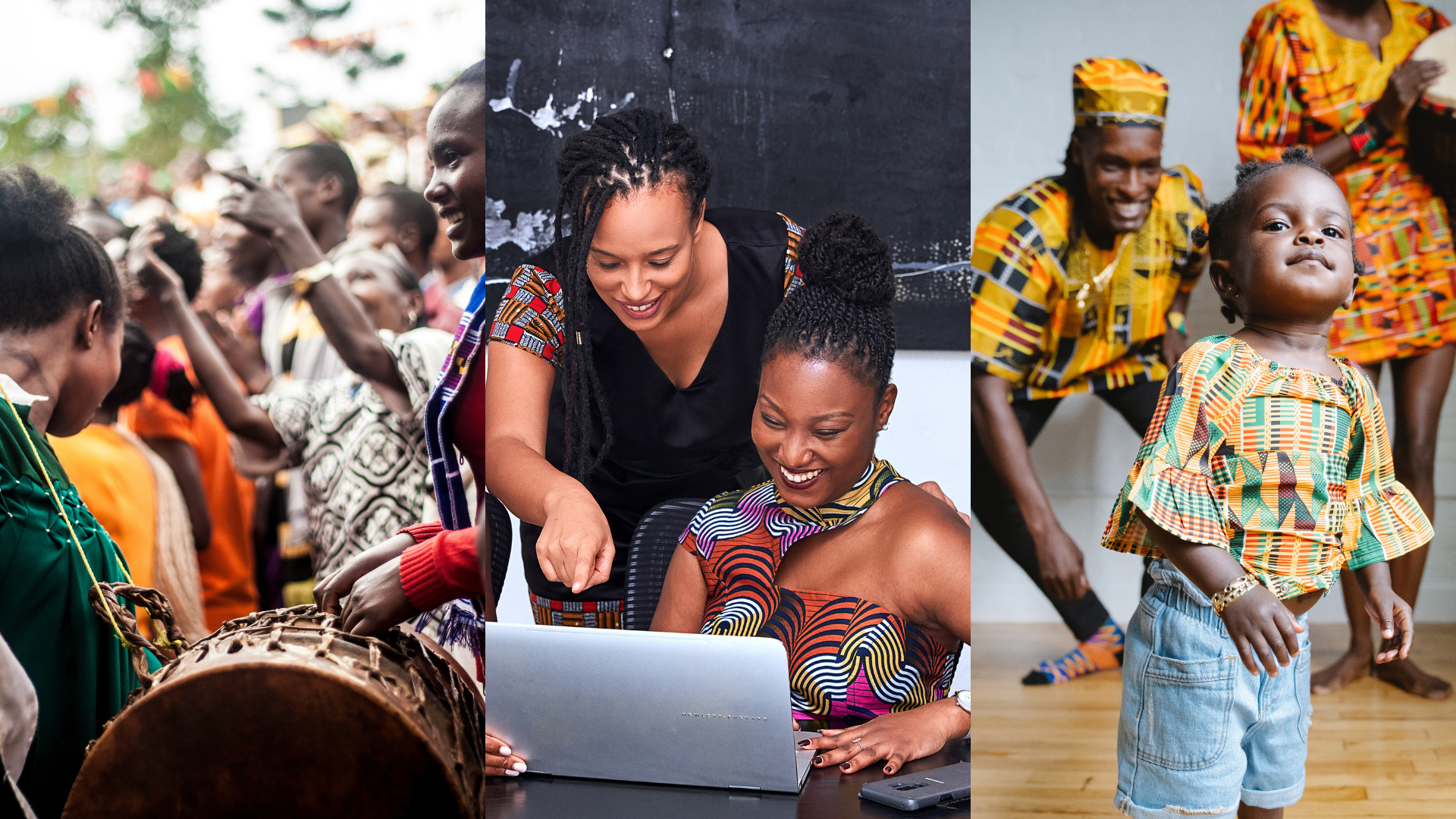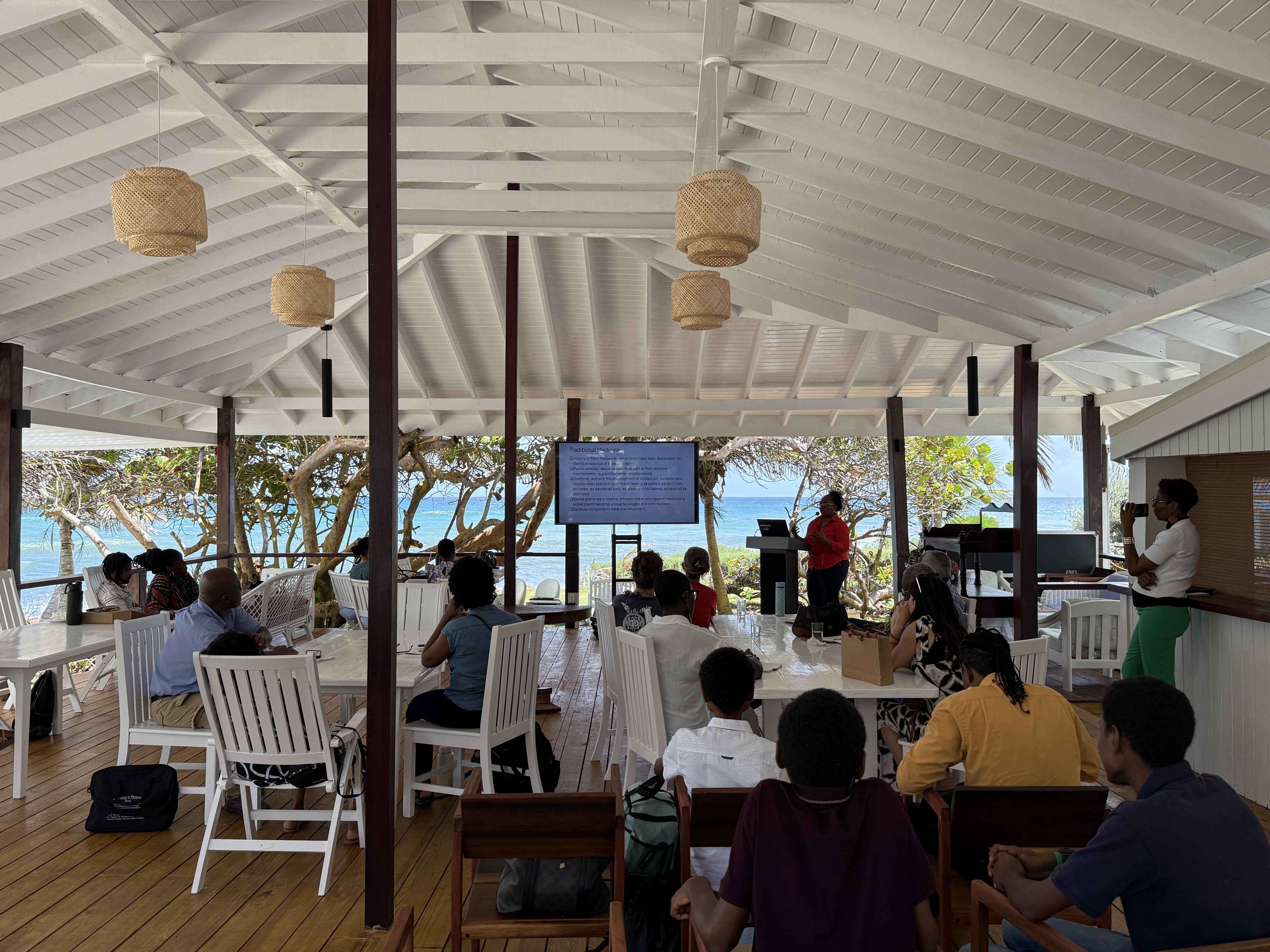The Tamarack Institute is a registered Canadian charity dedicated to ending poverty in all its forms, for good. We support real people and invest in real communities for long-term change.
The Six Projects Receiving Community Climate Transitions Innovation Fund Grants in 2024
We are thrilled to announce the recipients of the second round of Community Climate Transitions (CCT) Innovation Fund grants, continuing our commitment to supporting place-based, equitable, and inclusive climate action.
Last year, six inaugural recipients received grants during the first round. Their projects are nearing completion, and we produced this short video showcasing what they have achieved.
This year's grants have once again been made possible through the generous support of the Definity Insurance Foundation. We also thank CCT’s Advisory Group members for helping select the projects. We are thrilled to expand our impact even further this year by supporting two additional projects at the sprouting level. This is a result of top-up funds from our Community Contributions Fund––which aims to reduce barriers for equity-deserving communities to engage in local climate work––and a new partnership with Echo Foundation to accelerate the work of Ontario-based members.
We are excited to see how these projects, guided by resident leadership and multi-sector collaboration, will make meaningful strides in addressing the climate crisis and strengthening community resilience.
Scaling grant
Indian Bay Ecosystem Corporation (IBEC), Central Newfoundland | Ktaqmkuk
This project aims to build awareness and foster collective climate action through youth-led town hall events in five coastal Newfoundland communities: Gambo, Hare Bay, Dover, Centreville-Wareham-Trinity, and Indian Bay. These small communities (with populations ranging from 170 to 1,800) share a watershed and face increasing threats from sea-level rise and intensified storms.
Through the gatherings, residents will share observations of climate impacts, contribute to community hazard mapping, and brainstorm next steps and actions. The events will be guided by youth facilitators and will integrate Indigenous perspectives through the collaboration of leaders from Qalipu and Miawpukek First Nations.
By focusing on personal stories and local knowledge, the project seeks to create a public baseline of observed climate changes, deepen community conversations, and inspire further climate initiatives that promote local resilience. IBEC and partners hope that youth participants gain insight into the local effects of climate change and are empowered to contribute to solutions, while the Kittiwake Joint Council – representing towns from Gambo north to Lumsden along this shore – can use the process to expand engagement efforts to the rest of their members.
Sprouting grant
Climate Action London (CAL), London ON | Deshkan Ziibi/Asskunessiipi
CAL is expanding its efforts to engage more youth and diverse communities in the fight against climate change by bringing on a young person as a part-time Community Engagement Coordinator to help grow their outreach and impact. The coordinator will oversee student projects, mentor other young people, and curate volunteer opportunities at local events.
With a focus on fostering connections across diverse groups, this role will support efforts to broaden climate action in London. By attending community events and enhancing CAL’s digital presence, they seek to continue raising awareness about critical climate issues while reaching new audiences.
The coordinator will also play a key role in planning for EarthFest 2025, ensuring youth representation and diverse community involvement. CAL is eager to see how this new role will help build stronger partnerships and create impactful change throughout the city.
Antigonish Climate Action Hub (ACAH), Antigonish NS | Nalikitquniejk
Guided by the principle of Two-Eyed Seeing, which weaves together Indigenous and Western knowledges, ACAH will provide non-Indigenous Elders in Seniors for Climate, students from climate organizations at St. Francis Xavier University, and other community members an opportunity to engage with Elder Dr. Albert Marshall, who coined Etuaptmumk or Two-Eyed Seeing in 2004.
Led by Elder Marshall and local Elders embodying Indigenous knowledge, the 30 participants at this gathering, organized around the concept of Netukulimk––the Mi’kmaw laws of sustainability, will work together on holistic land-based solutions to the climate crisis. In fostering understanding of Two-Eyed Seeing, ACAH aims to create generative spaces for co-learning that will inspire transformative change by making intergenerational shifts to how we relate to each other and the earth.
Biosphere Institute of the Bow Valley, Canmore AB | Chuwapchipchiyan Kudi Bi
In the wake of the recent wildfires in neighbouring Jasper that destroyed much of the town, and the choking clouds of wildfire smoke that have become a regular occurrence, Canmore residents are seeking opportunities to connect with one another and find hope and courage through collective action.
This project aims to build community-led climate resilience by fostering engagement and integrating the diverse knowledge of equity-deserving groups. The Biosphere Institute of the Bow Valley and several local partners will offer participatory workshops for residents that aim to strengthen community and belonging while tackling climate change. These workshops will create spaces that amplify the voices of those with lived experience and develop collective action through unpacking themes such as climate anxiety and practical solutions for dealing with wildfires and smoke.
Through the project, partners aim to raise awareness of climate-related risks, foster climate disaster preparedness and address climate anxieties, share Indigenous knowledge, and empower local action.
Seed grant
Montérégie Regional environmental committee (CRE Montéregie), Montérégie QC | Wendake-Nionwentsïo/Anishinabewaki/Ho-de-no-sau-nee-ga/Kanienʼkeháka/Iroquoi
CRE Montérégie will support several regional county municipalities across Montérégie in developing their climate plans. While these plans traditionally focus on reducing greenhouse gas emissions and climate adaptation, CRE Montérégie seeks to expand their scope to include the socio-ecological transition—an approach that addresses both environmental and social challenges– and an equity and inclusion lens.
They will do this through a series of educational and applied activities engaging around 30 municipalities, 10 local organizations and residents, including hosting webinars unpacking ‘socio-ecological transition’ and how communities can multi-solve across a range of issues as well as community engagement and inclusion. They will also establish a working group to create customizable tools and actions for municipal climate plans.
This initiative builds the capacity of municipal staff and political will of elected officials working on developing climate plans to centre equity and apply a social lens to any actions that will be developed. It encourages municipalities to involve local partners—businesses, community groups, and citizens—in the Transition, ensuring that everyone plays a role in shaping a fair and equitable response to the climate crisis.
Corporation de développement communautaire du Centre-Sud de Montréal (CDC Centre-Sud)/Effervescence citoyenne, Montreal, QC | Tiohtià:ke/Mooniyaang
Created by a member of the grassroots group Effervescence citoyenne in Hochelaga-Maisonneuve and Centre-Sud neighbourhoods of Montreal, “J'habite ici - Une heure pour faire partie de la solution à la crise du logement” ("I Live Here - One Hour to Be Part of a Solution to the Housing Crisis") is a dynamic, resident-led game designed to help people in Montreal’s Centre-Sud and Hochelaga-Maisonneuve neighborhoods to engage deeply with housing issues. Using a participatory format, the game facilitates discussions on housing issues, integrating environmental and social justice perspectives. Through three 20-minute segments—Know, Understand, and Act—participants explore housing challenges, propose solutions, and deepen their understanding of their impacts.
The game is designed to promote deeper citizen involvement with local issues and amplify voices rarely heard in these discussions to build stronger, more resilient communities capable of addressing both housing and climate challenges. The grant will help enable more people to play the game and will support the organizers to identify and publicize 30 effective, resident-led solutions and facilitate the implementation of priority ones.


